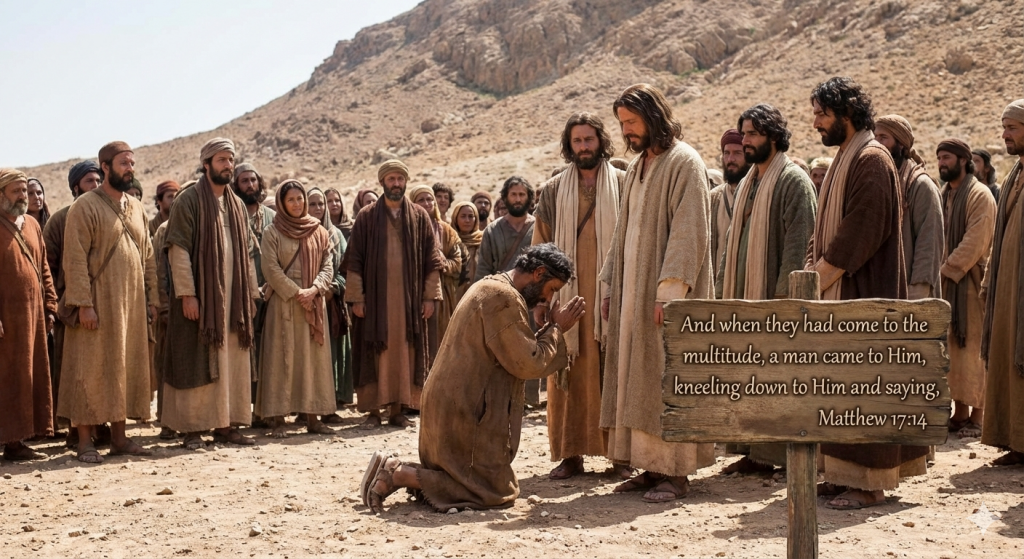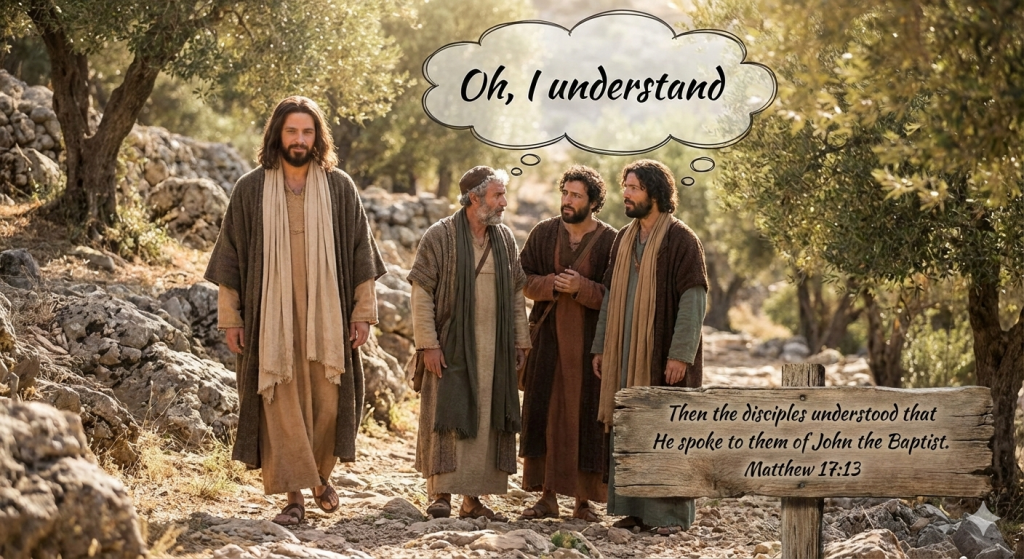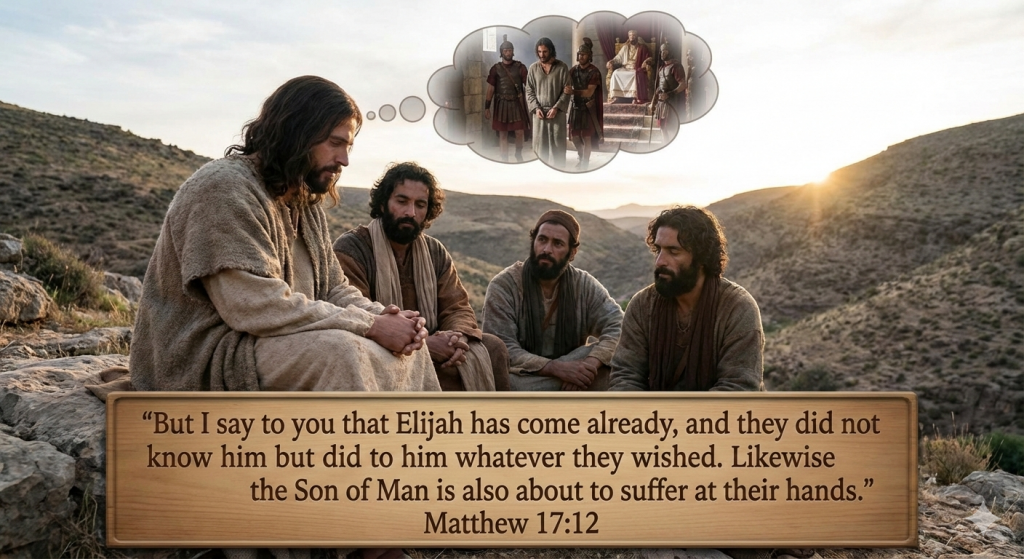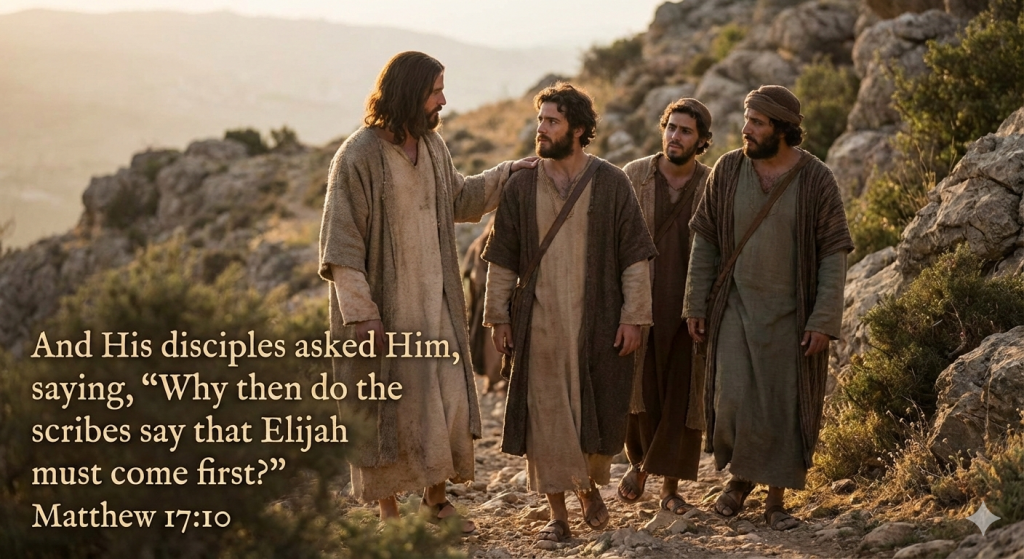Saturday, 28 February 2026
And when they had come to the multitude, a man came to Him, kneeling down to Him and saying, Matthew 17:14
Note: You can listen to today’s commentary courtesy of our friends at the “Bible in Ten” podcast. (Click Here to listen)
You can also read this commentary, scrolling with music, courtesy of our friends at “Discern the Bible” on YouTube. (Click Here to listen), or at Rumble (Click Here to listen).
“And they, having come unto the crowd, he approached Him – man, knee-falling to Him, and saying…” (CG).
In the previous verse, it said that the disciples understood that Jesus was speaking of John the Baptist in His reference to Elijah. Next, it says, “And they, having come unto the crowd.”
Mark’s gospel includes more detail, saying –
“And when He came to the disciples, He saw a great multitude around them, and scribes disputing with them. 15 Immediately, when they saw Him, all the people were greatly amazed, and running to Him, greeted Him. 16 And He asked the scribes, ‘What are you discussing with them?’” Mark 9:14-16
Luke’s gospel includes the thought that this was the next day after descending the mountain. With Luke’s reckoning, it could mean the next morning. That would square with the general statement by both Matthew and Mark that they descended the mountain and came upon what next transpires, which is, “he approached Him – man, knee-falling to Him, and saying…”
There is a new word, gonupeteó. It is derived from gonu, the knee, and an alternate form of piptó, to fall. Thus, it means he fell to his knees. As for what occurred, some texts finish this verse with the words, “and saying…” Other texts begin the next verse with those words.
Either way, a man has come and fallen before Jesus concerning an issue that has the disciples and the scribes disputing with one another.
Life application: Mark records that there was a dispute going on when Jesus and the others came to them. Though the matter of the dispute is not yet stated, we can learn from this. People dispute matters all the time concerning religion, theology, and doctrine.
Religious disputes require determining if what one believes corresponds with reality. In other words, we can know things about God even without the Bible. This is known as general revelation. When evaluating a religion, we need to see if the source of that religion corresponds with what we can know about God by using logic and reason.
Does the Bible match what general revelation tells us must be true about God? Does the Koran? Are there many gods or only one God? We can rather quickly whittle things down by understanding God’s nature.
Once we have thrown out Islam, Hinduism, etc., we are left with only one possible religious source of what is true about God. That is the Bible. This is God’s special source of revelation, telling us things we could not deduce from general revelation. From the Bible, we can do more whittling, using both general and special revelation.
Does the message of the Bible support Judaism? Does it support Mormonism or the doctrine of the Jehovah’s Witnesses? This is important because if we have a faulty view of God, even though we are using the Bible to pursue Him, we still will not be right with Him.
Once we have tossed out the incorrect theologies, we are left with what is proper. However, there are still doctrinal issues that are debatable within what we might call “biblical Christianity,” meaning the proper path of pursuing God.
Again, where do we go to resolve these issues? The answer is “to the Bible alone.” The people came to Jesus, the Word of God, to settle a dispute. He has now left us with His testimony, the word of God, meaning the Bible. If you are having trouble with conflicting doctrines being placed before you, the Bible will be where you need to go.
Is salvation eternal? Some say yes, and some say no. The Bible will provide the answer. Is there a rapture? What is the timing of the rapture? And so on. These issues may be debatable, but only because one (or both) of the people is incorrectly teaching the doctrine. The Bible will have one correct answer.
The way to determine if a particular teaching is correct is to keep things in their proper context. One or both of those debating eternal salvation may not be applying the proper context. This is the way we end disputes in our minds. Think about God, think about how He has presented Himself, and then meditate on His word. In doing this, we will be on the right path as we pursue our relationship with Him.
Lord God, help us to have the desire and the gumption to read Your word. How easy it is to read books about the Bible. But those books may or may not be in accord with what is right. Rather than wasting so much time on books about the Bible, help us to find a proper balance in pursuing You, with the majority of our time being in Your word. Yes, help us in this, O God. Amen.





